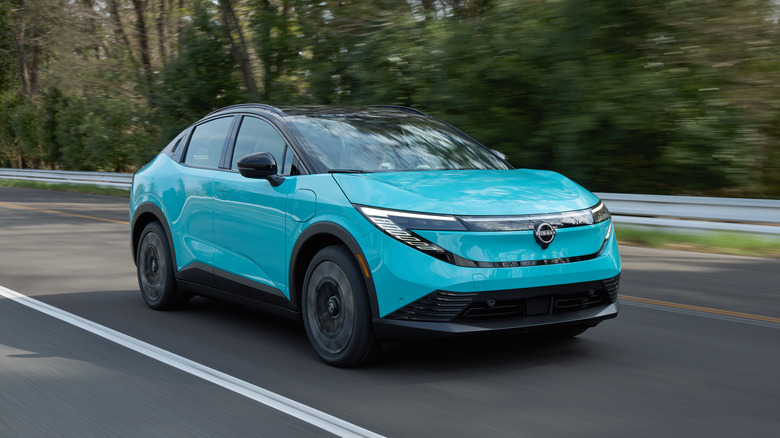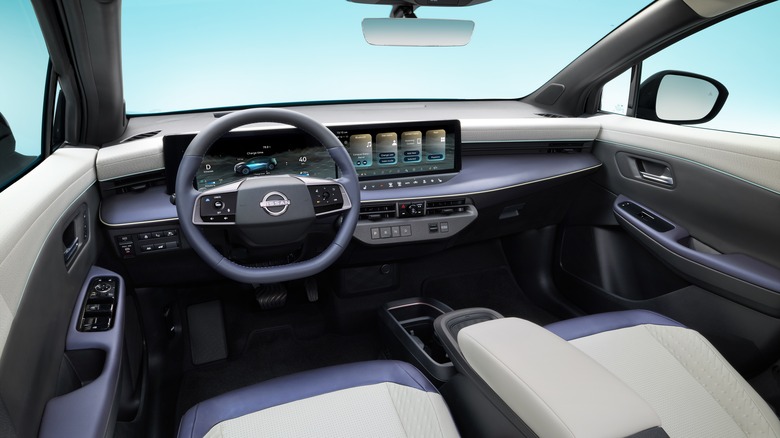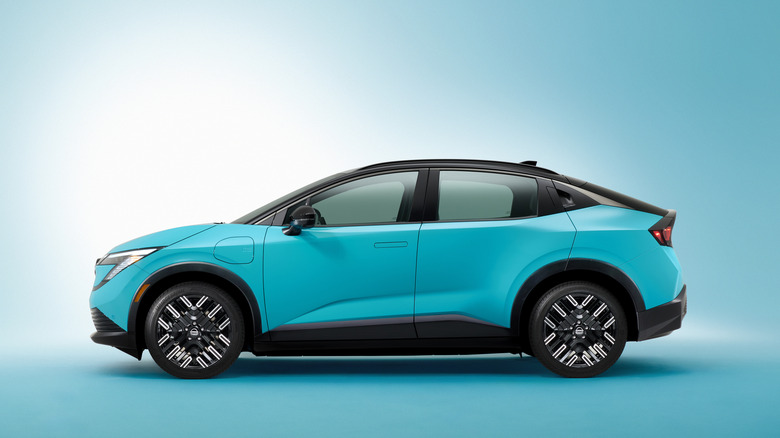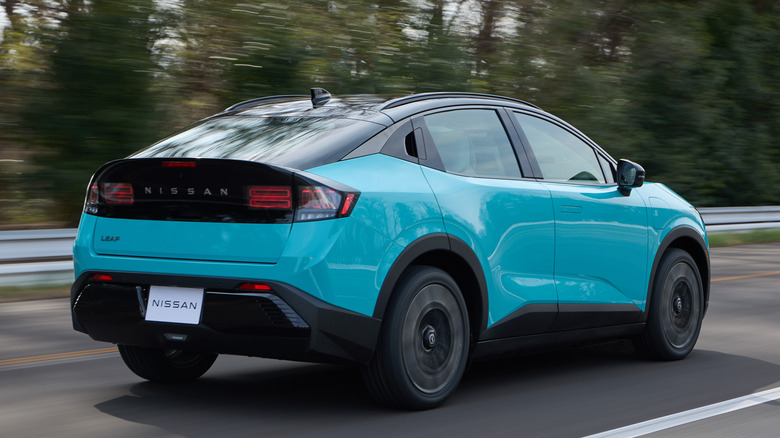The New 2026 Leaf Has The Right Range, But Will Nissan Forget What's Most Important?
The Nissan Leaf is getting a substantial amount of refinements for the 2026 model year. Nissan's venerable Leaf was one of the first mainstream EVs to have any sort of success in the market. However, since then, it has gotten crowded out by other mass market EVs like the Tesla Model 3, Hyundai Ioniq5, now-defunct Chevy Bolt and, more recently, the Chevy Equinox EV.
The 2026 model, on the other hand, is a big step up. Notably, the range has been increased significantly. The outgoing 2025 Leaf has a range of a paltry 212 miles. That pales in comparison to most other EVs on the market today. Today, Nissan has announced that the 2026 Leaf will have a maximum range of 303 miles before you need more electrons. That puts it within striking distance of the Equinox EV and Hyundai Ioniq5.
It's not magic, of course: the Leaf's new battery is significantly bigger, at 75 kilowatt-hours, as opposed to the maximum 60 kilowatt-hours in the previous generation model. The electric motor, Nissan says, generates 214 horsepower, the same power as the motor used on higher trim level 2025 Leafs.
Nissan did its homework
Nissan seems to have really done its homework with developing the new Leaf. Beyond the usual testing in a number of different climates across North America to ensure that drivers get the most out of their EV no matter where they live – I tested a Ford Mustang Mach-E in the winter with mixed results, since adverse weather can drain a battery very quickly — Nissan has also updated the storage capacity of the new Leaf to make it more usable. There are more premium features available, too, like a dimming sunroof and a 10-speaker sound system if you are willing to check a few option boxes.
To borrow the phrase from common vernacular, the Nissan Leaf has had a significant "Glow Up" for the 2026 model year, even if it isn't really filling in a gap in the segment like the original did. That's a good thing, frankly: giving customers more choice with EVs isn't a bad strategy, and judging by the stats and figures, Nissan has turned the Leaf from the barest minimum viable electric car to something you might actually want to drive.
Are the numbers good?
Here's the kicker, though: Nissan needs to price the Leaf correctly. It needs to be laser targeted to remain competitive with other cars within its segment, maybe even undercutting them entirely. Nissan's gas-powered cars are well-equipped (if a little boring) and priced to beat out the competition from Toyota and Honda at all costs. Nissan hasn't given any price details on the new Leaf yet, so we can only speculate what value Nissan is going to assign the car and whether or not that's going to align with what customers want to spend.
A four-door EV compact with 300 miles of range should hover around the $35,000 to $40,000 range. Anything higher than that, and drivers will probably just move onto Hyundai, Chevy, or Tesla. While less than that would be impressive, it simply might not be realistic given the current state of EV technology. Nissan will also have to be aggressive with leasing and incentives to get customers onto the parking lot of the dealership. New features and a huge increase in range is nice, but it has to make sense with your bank account. Capitalizing on the ongoing exodus from Tesla could be a good move.
Nissan's look in the mirror
Time will tell whether or not the new and improved 2026 Nissan Leaf will sell like lithium-powered hotcakes or not. Given the success of cars like the Hyundai Ioniq5 and Tesla Model 3, EV buyers clearly like normcore commuter EVs with decent range at a good price. It's really up to Nissan to capitalize on that segment's success.
Competition is fierce. The new Leaf looks like its up to the task of remaining in the running when it comes to entry level EVs. The very first Nissan Leaf shows that Nissan is capable of practicing some sales magic in the segment. The real question is whether or not the automaker can do it again, especially since this time around it'll take something more boring than a funky little electric compact. It's going to take a long introspective look at pricing spreadsheets and dealership metrics to ensure that Nissan has a place in the EV world in a world of Teslas and Hyundais.



